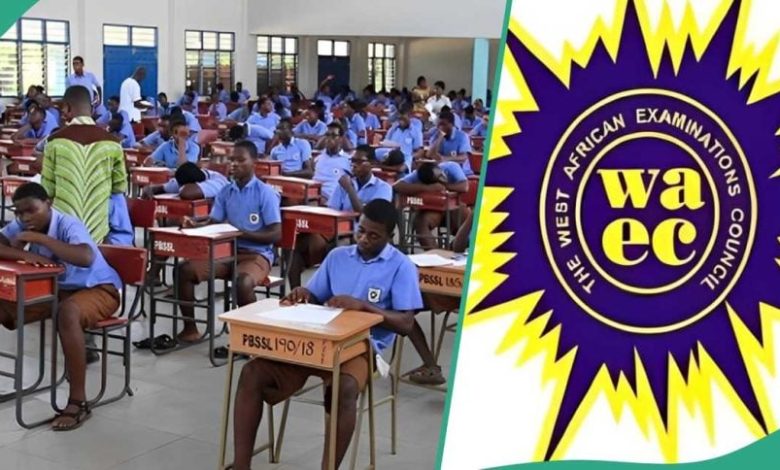WAEC records worst SSCE performance in five years, pass rate drops to 38%

Concerned stakeholders in the education sector — including educationists and parents — have expressed worry over the poor performance recorded in the 2025 senior school certificate examination (SSCE) conducted by the West African Examinations Council (WAEC).
According to WAEC, only 754,545 of the 1,969,313 candidates who sat for the exam — representing 38.32 per cent — obtained credit and above in at least five subjects, including English Language and Mathematics.
This marks the worst performance in recent years, with a sharp decline of 33.8 percent compared to the 72.12 percent recorded in 2024.
Amos Dangut, Head of Nigeria’s Office (HNO) of WAEC, announced the release of the results in Lagos, noting that some schools adopted the computer-based test (CBT) method for the 2025 edition while others used the traditional paper-based test.
Dangut said the council withheld the results of 192,089 candidates — about 9.75 percent — over various reported cases of malpractice. However, this figure reflects a drop compared to the 11.92 per cent recorded in 2024.
A total of 1,973,365 candidates from 23,554 recognised secondary schools registered for the exam, while 1,969,313 candidates eventually sat.
The exam was also administered in schools in Benin Republic, Côte d’Ivoire, and Equatorial Guinea where Nigeria’s curriculum is in use.
Among the candidates were 12,178 with special needs — including those who were visually impaired, had hearing difficulties, or faced physical and cognitive challenges. WAEC said provisions were made to ensure full participation.
Of the total candidates, 49.6 percent were male, and 50.4 percent were female. WAEC said 77.06 percent of the candidates had their results fully processed and released, while 22.94 per cent are still being processed due to technical issues.
WAEC attributed the poor performance largely to the serialisation of objective questions and the use of computer-based testing, measures aimed at curbing malpractice.
“The serialisation approach meant each candidate received a different set of questions in subjects like English Language, Mathematics, Biology, and Economics, which made cheating harder,” Dangut explained.
“Unfortunately, many candidates attempted to copy answers from others despite having different question papers, resulting in widespread failure in objective tests.”
He added that while essay performance remained relatively stable, the objective paper scores saw a notable decline.





